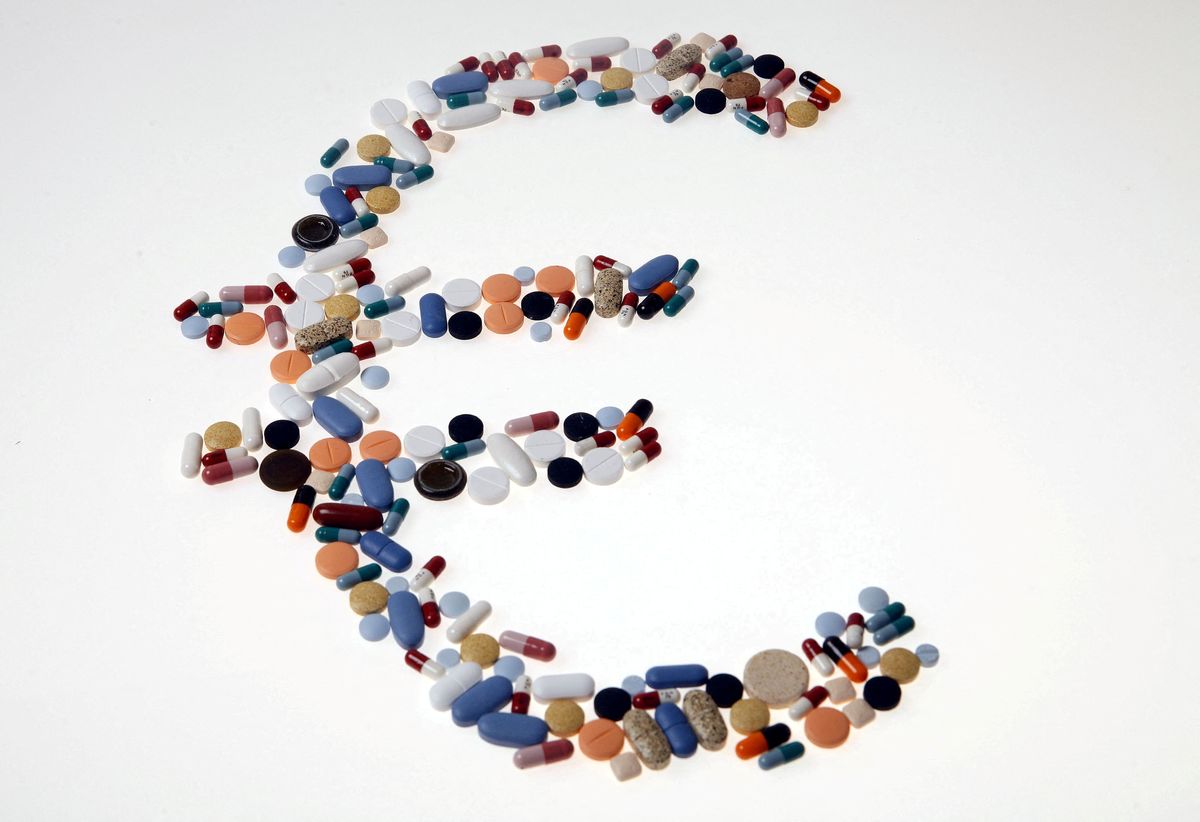Can artificial intelligence improve the medical industry? Big Pharma thinks so
Japanese drugmaker Takeda Pharmaceutical is one big pharma company making moves to stay on top of its game by teaming up with AI tech startups.

A few minutes every morning is all you need.
Stay up to date on the world's Headlines and Human Stories. It's fun, it's factual, it's fluff-free.
The backstory: Artificial intelligence (AI) chatter has been everywhere lately. So is it any big surprise the tech is making waves in just about every industry we can think of? In fact, Big Pharma has been interested in it even before OpenAI's ChatGPT really set off the AI bandwagon last year.
Back in 2018, Google parent Alphabet’s AI company DeepMind used a program called AlphaFold to predict protein shapes even better (and way faster) than biologists can. That’s a big deal because predicting protein shapes is an important part of research into developing medicines and treating and curing diseases. And now, AI-driven drug discovery is becoming a big thing. In fact, investments in these kinds of companies have tripled over the past four years, reaching a massive US$24.6 billion in 2022, according to Deep Pharma Intelligence.
More recently: Japanese drugmaker Takeda Pharmaceutical is one big pharma company making moves to stay on top of its game by teaming up with AI tech startups and hiring more data scientists to take things to the next level. By using AI, it hopes to speed up the drug development process to save money and time.
But lots of pharma companies are exploring AI research and development, including big names like Bayer, Sanofi, AstraZeneca and others. In fact, COVID really pushed this sort of tech forward as pharma companies raced to create vaccines. For example, Pfizer teamed up with AI companies to work on its COVID treatments, and they were approved in less than two years when it usually takes about a decade to get a drug on the market.
The development: Takeda just dropped a cool US$4 billion to snag an experimental psoriasis drug from Nimbus Therapeutics in Boston, which used AI and machine learning algorithms to pick this compound out of thousands of other molecules. Plus, the drug already passed the first two phases of human trials, meaning it could be one of the first therapies discovered with AI if it passes the final trials in the next few months.
Usually, bringing a drug all the way to the market can cost almost US$3 billion. And the experimental process has a high rate of failure – 90% – so avoiding that trial and error could save companies big bucks. The potential revenue from this is wild – financial analysts predict it could bring in up to US$3.7 billion in annual sales. And according to Morgan Stanley, we might see about 50 new AI-driven therapies worth over US$50 billion in sales over the next 10 years.
Key comments:
“Any technology that unlocks cutting-edge skills for our employees, reduces manual work, takes the friction out of the system and frees up time for greater scientific insight and discovery is vital,” said Anne Heatherington, head of Takeda’s data science institute.
“When biopharma companies successfully apply AI in R&D, there can be significant impact,” said Alex Devereson, a partner at McKinsey & Co. who advises drugmakers on digital processes and analytics. “In five years, we expect these approaches to become more structurally embedded in pharma R&D processes and lead to more impact at scale.”
“In the next few years, we need to see also clinical success of AI-driven projects, otherwise there will be a problem with translation to efficacy and safety of methods,” said Andreas Bender, professor of molecular informatics at Cambridge University and co-founder of AI drug discovery companies Healx and Pharmenable.
“The new gap for me and a vision right now is the generation of high quality data in an amount that unlocks the true potential of artificial intelligence deep learning. These techniques do require a massive amount of validated data,” said Andrea Beccari, who heads up Dompé’s drug discovery platform.




Comments ()